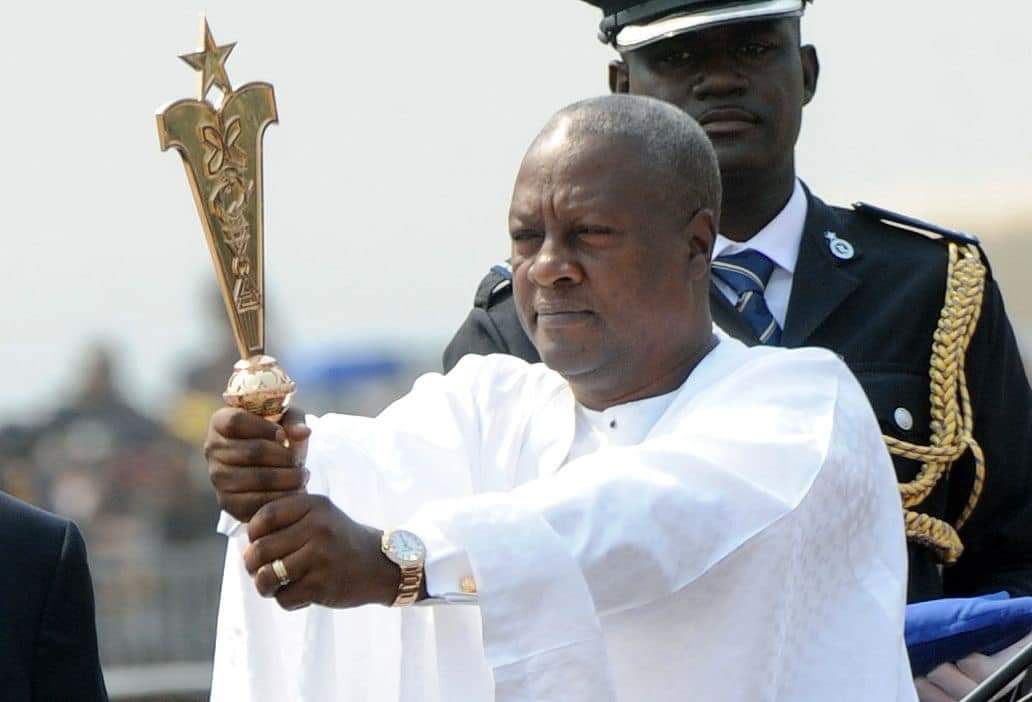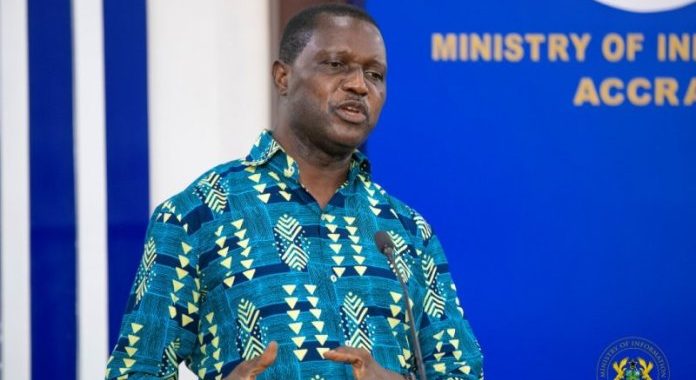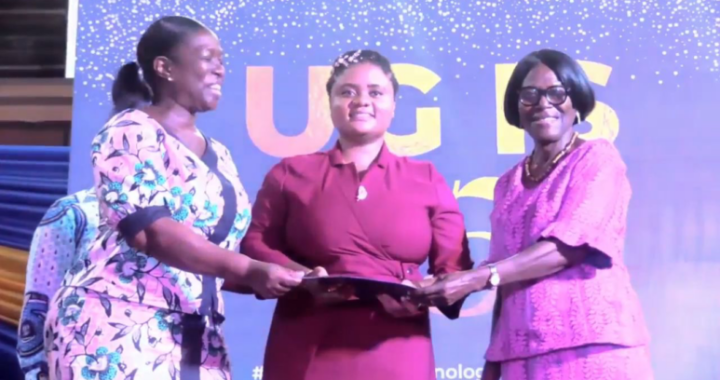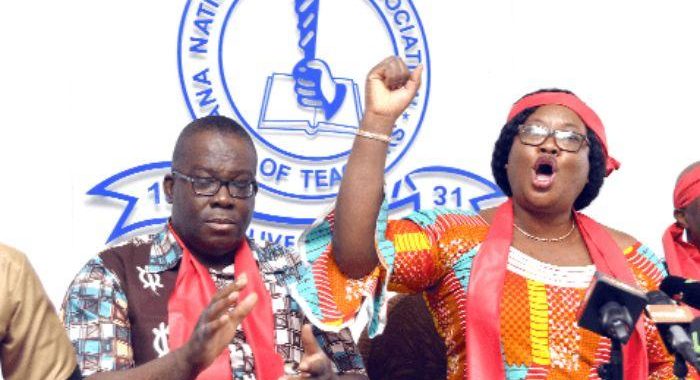On January 7, 2013, John Dramani Mahama was inaugurated as the president of Ghana

On January 7, 2013, John Dramani Mahama was inaugurated as the president of Ghana.
John Dramani Mahama was swown in as the fourth president under the fourth republic of Ghana on 7th January, 2013 by then Chief Justice, Her Ladyship Theodore Wood.
Following the presidential and parliamentary elections in 2012,then leading opposition party, New Patriotic Party (NPP) boycotted the ceremony with intention that the election victory of John Dramani Mahama was not free and fair.
John Dramani Mahama took the oath of office before invited dignitaries and thousands of Ghanaian citizens.
John Dramani Mahama election success was challenged by Nana Addo Danquah Akufo-Addo then opposition leader of the New Patriotic Party and other executives of the Party when they filed a lawsuit against challenging the results of 2012 polls but the cities of Ghana remains peaceful without destruction from both political parties supporters .
John Dramani Mahama first became president of Ghana following the death of president John Evans Atta Mills.
He succeeded him as required by the 1992 constitution of Ghana.
During the 2012 polls, John Dramani Mahama had majority of 50.7 percent of the total votes counted defeating Nana Addo Danquah Akufo-Addo by three percent.
The National Democratic Congress (NDC) also won majority seats in Parliament .
The New Patriotic Party boycotted the Inaugural ceremony but the ceremony went on successfully.
KNUST Freshers Biometric Registration, Orientation and Lecture Start Dates
Below is the full inaugural speech by John Dramani Mahama
“Hon. Speaker of Parliament, His Excellency the Vice President, Her Ladyship the Chief Justice, Your Excellencies, our dear former Presidents, Your Excellencies Visiting Heads of State and Heads of Delegations, Hon. Members of Parliament, Members of the Diplomatic Corps, Nananom, Distinguished Guests, My Fellow Countrymen-and-women, Family and Friends.
Good morning.
It has been said that what is past is prologue, a mere introduction of all that is yet to come. If this is the case, then Ghana is in store for a wealth of achievement.
Ghana’s past is filled with one example after the other of courage, sacrifice and perseverance. Ghana’s past is defined by heroic men and women—pioneers, visionaries, patriots.
Indeed, we have inherited a powerful legacy, beneficiaries of a mighty history.
The names of our forefathers and foremothers are firmly etched in the world’s memory. People like Nana Yaa Asantewaa, Naa Gbewa, Dr. Kwame Nkrumah and Dr. J.B. Danquah.
People like Efua Sutherland, Dr. James Kwegyir Aggrey, Dr. Esther Afua Ocloo and Dr. Ephraim Koku Amu.

These are but a few of the names of people who were fearless enough to fulfil their dreams, or to fight for the liberation of their people, or to envision change and then manifest it.
We rightfully memorialize the names of the many, many individuals whose singular contributions have elevated the profile of this nation and enriched the lives of its citizens.
We respectfully extol their virtues and hold them in high esteem. In fact, we hold them in such high esteem that we often overlook entirely the reality that these heroes, these men and women, were as human as you and I.
The majority of individuals who have had the greatest impact on this country came from humble beginnings.
They were not so different from most Ghanaians, like those assembled here or those going about the events of their day in the homes, churches, mosques, and offices across the country.
They were ordinary people who lived their lives to the fullest, made use of their God-given talents, and took pride in their activities. That was the simple call they answered, the call that placed them in extraordinary circumstances, events and experiences that led them to indelibly change the face and the very fabric of this nation.
Mention the name Tetteh Quarshie, for instance, and you will learn the story of an ordinary man, a blacksmith, the son of a farmer from Teshie. In 1870, Tetteh Quarshie travelled to Fernando Po, an island that belongs to the nation of Equatorial Guinea and is now called Bioko.
At the end of that fateful trip, Tetteh Quarshie returned home with several cocoa seeds. He planted those seeds on his property in Mampong-Akwapim to see if they would grow.
So well suited was this crop to the soil and climate that it grew abundantly. It took less than twelve years for the country to start exporting cocoa. Now, over one hundred years later, Ghana is the world’s second largest exporter of cocoa, and it is Ghana’s leading export earner.
This is the effect that the life of one ordinary citizen can have on an entire nation.
Complacency and frustration can entice us into believing that we are insignificant players stuck somehow in the background of a bigger picture, or that we are incapable of making a difference. But history itself has proven that nothing could be further from the truth.
We all, each and every one of us, have a role to play in the growth and development of our beloved mother Ghana. In our hands—yours as well as mine—rests the success or failure of Ghana’s future.
There is no denying the fact that in the past 55 years Ghana has made tremendous gains, but there is also no denying the fact that Ghana is still a young country and every young country goes through its share of instability and difficulty as it struggles to find the direction toward permanence.
Over the course of the last four years, a tremendous amount of work has been done. Nevertheless, there is a tremendous amount of work that still needs to be done.
More jobs must be created. More roads, bridges, schools and hospitals must be built. The infrastructure that we already have must be expanded, strengthened, and made better able to withstand the increased usage.
Equipment should not be the only thing that is state-of-the-art in our institutions; systems, procedures and staff must be brought up to standard; best practices must be implemented.
We need to look beyond temporary fixes to find lasting solutions for the complications we’ve experienced with power, water and sanitation.
We must continue to invest in our agricultural sector, and grow our economy so that it lifts the bulk of our most crippling financial burdens, especially among the poorest of the population.
A country’s most valuable resource is its human resource. This is why it is imperative that our citizens have access to good healthcare.
These issues and concerns are all works in progress; they are realistic goals that have been set, and that are within our capabilities to be met, and in a timely fashion.
I have taken an oath that as president of this nation, I will work hard to place us on the right path, and I will lead us over the hurdles and past the obstacles that might threaten to keep us from meeting our goals. The promises that I have made are promises that I intend to keep.
But change does not happen overnight and sometimes, despite whatever progress has been placed in motion, it will appear to be darkest before the dawn of the new day makes that progress visible. In such times I will be counting on you to maintain the faith and the trust that you have placed in me as president. I will not let you down.
Of course, every society has its share of people who would rather talk and complain about what is wrong, than devote their time and efforts to do what it takes to make things right.
At every given opportunity, they will tell us all the things we cannot achieve and all the reasons why we should not even attempt. The choice is ours to believe or not believe. We can look within ourselves and choose to see the lie of our powerlessness or we can see the unlimited horizon of our own potential.
We are moving forward at a rapid pace. New resources are at our disposal; new alliances are being formed. The opportunities posed by these gains could result in a self-sufficiency that was always imagined and desired, but was never a realistic occurrence in the foreseeable future, not in the way it is right now.
It is true that other countries have met adversity while trying to make the most of prospects such as the ones we have before us. But those countries are not Ghana. They do not have the benefit of our history or the example of our heroes. We have been the first before, the success story. We have blazed trails before for others to follow.
Nelson Mandela once said, “It always seems impossible until it is done.” I believe that with God, and in Ghana, all things are possible.
I believe this because I have seen the work and accomplishments of my predecessors, President Jerry John Rawlings, President John Agyekum Kufuor and, of course, the late President John Evans Atta Mills.
We were all witness to the way they were able to take what others said was impossible and to not only turn into something that was probable, but to realise their vision and get it done. To them I say, “Ayekoo.” I am ever grateful to have the advantage of your wisdom and the important lessons of your leadership.
I would also like to extend my gratitude and appreciation to my transition team for their time, their service and their tireless efforts. More than anything, I would like to acknowledge them for their morale and fair-mindedness, for their drive and their determination to place the good of the nation above all else.
There is a torch that is passed from one era of Ghanaians to the next. It is as fragile and as irreplaceable as any family treasure.
My fellow countrymen and women, that torch is now in our possession.
That torch is the tradition of optimism and hope that we must carry on. It is the responsibility that we have to take charge of our lives, and in so doing to determine the course of Ghana’s future.
We are now the keepers of that flame. It is only by doing and being our best that we can make Ghana its best. We must all do our part, every single day, whether it is by reducing the amount of plastic waste that is in our environment, by driving responsibly and courteously to ensure that our roads are safe, or by sharing kindness with a stranger or someone less fortunate.
Your actions do matter. You do make a difference.
As president, I will take to heart those very words that I have just extended to you. I will do and be my best. I will give my best, and I will ensure that my actions make a positive difference in the lives of Ghanaians.
I will work to ensure that our society is less polarized and weighted down by the pressures of political differences. I will work to ensure that Ghana is a place where all citizens, regardless of their religious faith, ethnicity or political affiliation, will have the opportunities available to them to reach their full potential.
Ghana should, and will, be a place where economic opportunities are available to everyone. I recognise the vital role that our private sector, especially small and indigenous businesses, play in the expansion of our workforce as well as in the growth and stability of our economy. I want to assure the business community that I will be an ally. I will extend whatever support I am able to reinforce your contributions to our development.
Let us all stand, not as separate entities but as partners. Together we will build a Ghana that will be a source of pride for all of us.
This is our country. This is our moment; Ghana’s time, once again, for greatness.
May God bless you, and may God continue to bless our homeland, Ghana”.
Send Stories | Social Media | Disclaimer
Send Stories and Articles for publication to [email protected]
We Are Active On Social Media
WhatsApp Channel: JOIN HERE
2024 BECE and WASSCE Channel - JOIN HERE
Facebook: JOIN HERE
Telegram: JOIN HERE
Twitter: FOLLOW US HERE
Instagram: FOLLOW US HERE
Disclaimer:
The information contained in this post on Ghana Education News is for general information purposes only. While we endeavour to keep the information up to date and correct, we make no representations or warranties of any kind, express or implied, about the completeness, accuracy, reliability, suitability or availability with respect to the website or the information, products, services, or related graphics contained on the post for any purpose.



 Controversies surrounding Ghana’s new public school uniform initiative
Controversies surrounding Ghana’s new public school uniform initiative  NSMQ star Jochebed Adwoa Sutherland sweeps 12 awards at UG Vice-Chancellor’s Ceremony
NSMQ star Jochebed Adwoa Sutherland sweeps 12 awards at UG Vice-Chancellor’s Ceremony  Ghana’s Education Quality rank at 125 out of 183 countries in latest Global Youth Development Index
Ghana’s Education Quality rank at 125 out of 183 countries in latest Global Youth Development Index  Teacher Unions Start Regional Demo With Volta Region On May 3rd
Teacher Unions Start Regional Demo With Volta Region On May 3rd